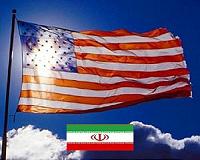 |
Tehran (AFP) July 4, 2010 A top Iranian lawmaker said on Sunday that Tehran could stop refining uranium to 20 percent purity level, the most controversial part of its atomic programme, if it gets nuclear fuel required for a research reactor. "If the fuel for the Tehran research reactor is given, Iran will not insist on continuing the production of the fuel domestically," state news agency IRNA quoted Alaeddin Borujerdi, head of parliament's commission on foreign policy, as saying. Iran has infuriated world powers by refining since February uranium to 20 percent level which when converted into fuel plates or rods can be used to power nuclear reactors. World powers want Iran to suspend the sensitive atomic work, accusing Tehran of secretly aiming to make nuclear weapons. The Islamic republic says its atomic programme is purely for peaceful purposes. On June 23, Iran's atomic chief Ali Akbar Salehi said that Iran was "not in a hurry" to produce 20 percent enriched uranium even if it can process five kilograms every month. "We will adjust the production in a way that the workshop for making the fuel plates is equipped," he said, referring to fuel made from the 20 percent enriched uranium and used to power the Tehran research reactor. Borujerdi's remarks come after Russian Foreign Minister Sergie Lavrov said on June 29 that the United States, Russia and France had asked the UN atomic watchdog to organise a meeting with Iran over the fuel deal but on a condition that Tehran stops the 20 percent enrichment work. Iran began enriching uranium to 20 percent level after a deadlock over a nuclear fuel deal drafted by the UN atomic watchdog last October. That deal envisaged Tehran sending its low-enriched uranium to Russia and France for conversion into high enriched material -- 20 percent -- and returned to Iran as fuel for the reactor which makes medical isotopes. But the deal became bogged down after the two sides levied conditions unacceptable to the other. In May, Brazil and Turkey brokered a counter proposal to facilitate the uranium exchange. World powers however cold-shouldered the plan and went ahead and voted for a fourth round of UN sanctions against the Islamic republic. Borujerdi warned Sunday that if world powers implement the sanctions, they "should not expect Iran to continue the Vienna talks." He was referring to the fuel deal negotiations in the Austrian capital with the United States, Russia, France and the UN atomic watchdog.
Share This Article With Planet Earth
Related Links Learn about nuclear weapons doctrine and defense at SpaceWar.com Learn about missile defense at SpaceWar.com All about missiles at SpaceWar.com Learn about the Superpowers of the 21st Century at SpaceWar.com
 Obama signs toughest-ever US sanctions on Iran
Obama signs toughest-ever US sanctions on IranWashington (AFP) July 1, 2010 President Barack Obama on Thursday signed into law the toughest ever US sanctions on Iran, which he said would strike at Tehran's capacity to finance its nuclear program and deepen its isolation. The measures, on top of new UN Security Council and European sanctions, aim to choke off Iran's access to imports of refined petroleum products like gasoline and jet fuel and curb its access to the ... read more |
|
| The content herein, unless otherwise known to be public domain, are Copyright 1995-2010 - SpaceDaily. AFP and UPI Wire Stories are copyright Agence France-Presse and United Press International. ESA Portal Reports are copyright European Space Agency. All NASA sourced material is public domain. Additional copyrights may apply in whole or part to other bona fide parties. Advertising does not imply endorsement,agreement or approval of any opinions, statements or information provided by SpaceDaily on any Web page published or hosted by SpaceDaily. Privacy Statement |